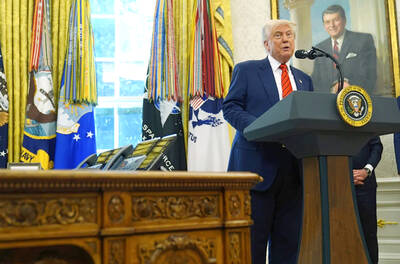Controversial missionary activities by fundamentalist Christian sects in Sri Lanka have inflamed passions among the predominantly Buddhist population to an extent that could rebound against older, established Christian groups such as the Catholics.
New evangelicals, often flush with American funding and eager to spread the fundamentalist gospel in the island, have been targeting the poorer sections of Sri Lankan society. Jehovah's Witnesses, the Assembly of God, Southern Baptists and several others sects have established churches in remote rural areas that have remained Buddhist through the centuries. They distribute food, clothes and other basic essentials and even cash to the deprived people, encouraging them to attend prayer sessions.
This has antagonized Buddhists, who have launched attacks on some of these churches and preachers. Many have called for a law prohibiting "unethical" religious conversion and demanded that evangelists set up shop in predominantly Christian, rather than Buddhist, areas.
The zeal of the fundamentalists has also affected Sri Lanka's established churches, especially the Roman Catholic community, the largest and oldest Christian church, introduced by Portuguese colonizers in 1505.
Matters came to a head last August when Sri Lanka's Supreme Court ruled in a landmark judgement that the constitution's guarantee of freedom of worship did not extend to the right to propagate religion.
The judgment also noted the constitution's acknowledgement of Buddhism as the country's foremost religion and the state's duty to protect and foster it.
The court was responding to a petition by Buddhists against the legal incorporation of a Roman Catholic order of missionary nuns seeking to carry out teaching, vocational youth training, nursing and care of the elderly, together with missionary work. It ruled that "the spread of knowledge to youth" by a Christian missionary order was inconsistent with the constitutional requirement to protect and foster Buddhism, the religion of 69 percent of the population.
Hindus (15 percent) are the next biggest group, followed by Christians (8 percent), Muslims (7 percent) and others (1 percent).
The Supreme Court also held that Christian institutions should not couple religious instruction with charitable deeds and agreed with the petitioners that young, inexperienced and elderly people could be lured to other religions by charitable activities.
Although fundamentalist Christians number less than 1 percent of the population, their activities are highly visible among the urban middle class and are spreading increasingly to the rural poor. More than 10 attacks on new evangelist churches have been recorded this year compared with five last year.

A new online voting system aimed at boosting turnout among the Philippines’ millions of overseas workers ahead of Monday’s mid-term elections has been marked by confusion and fears of disenfranchisement. Thousands of overseas Filipino workers have already cast their ballots in the race dominated by a bitter feud between President Ferdinand Marcos Jr and his impeached vice president, Sara Duterte. While official turnout figures are not yet publicly available, data from the Philippine Commission on Elections (COMELEC) showed that at least 134,000 of the 1.22 million registered overseas voters have signed up for the new online system, which opened on April 13. However,

ALLIES: Calling Putin his ‘old friend,’ Xi said Beijing stood alongside Russia ‘in the face of the international counter-current of unilateralism and hegemonic bullying’ Chinese President Xi Jinping (習近平) yesterday was in Moscow for a state visit ahead of the Kremlin’s grand Victory Day celebrations, as Ukraine accused Russia’s army of launching air strikes just hours into a supposed truce. More than 20 foreign leaders were in Russia to attend a vast military parade today marking 80 years since the defeat of Nazi Germany in World War II, taking place three years into Russia’s offensive in Ukraine. Putin ordered troops into Ukraine in February 2022 and has marshaled the memory of Soviet victory against Nazi Germany to justify his campaign and rally society behind the offensive,

CONFLICTING REPORTS: Beijing said it was ‘not familiar with the matter’ when asked if Chinese jets were used in the conflict, after Pakistan’s foreign minister said they were The Pakistan Army yesterday said it shot down 25 Indian drones, a day after the worst violence between the nuclear-armed rivals in two decades. Pakistani Prime Minister Shehbaz Sharif vowed to retaliate after India launched deadly missile strikes on Wednesday morning, escalating days of gunfire along their border. At least 45 deaths were reported from both sides following Wednesday’s violence, including children. Pakistan’s military said in a statement yesterday that it had “so far shot down 25 Israeli-made Harop drones” at multiple location across the country. “Last night, India showed another act of aggression by sending drones to multiple locations,” Pakistan military spokesman Ahmed

US President Donald Trump on Wednesday said that he would make a decision about how the US government would refer to the body of water commonly known as the Persian Gulf when he visits Arab states next week. Trump told reporters at the White House that he expects his hosts in Saudi Arabia, Qatar and the United Arab Emirates will ask him about the US officially calling the waterway the Arabian Gulf or Gulf of Arabia. “They’re going to ask me about that when I get there, and I’ll have to make a decision,” Trump said. “I don’t want to hurt anybody’s